This article is an ‘referencing’ investigation with multiple renowned scientists and acclaimed newspapers – into the warming of the Arctic and Antarctic – given the lack of action on climate change, any action may seem welcome.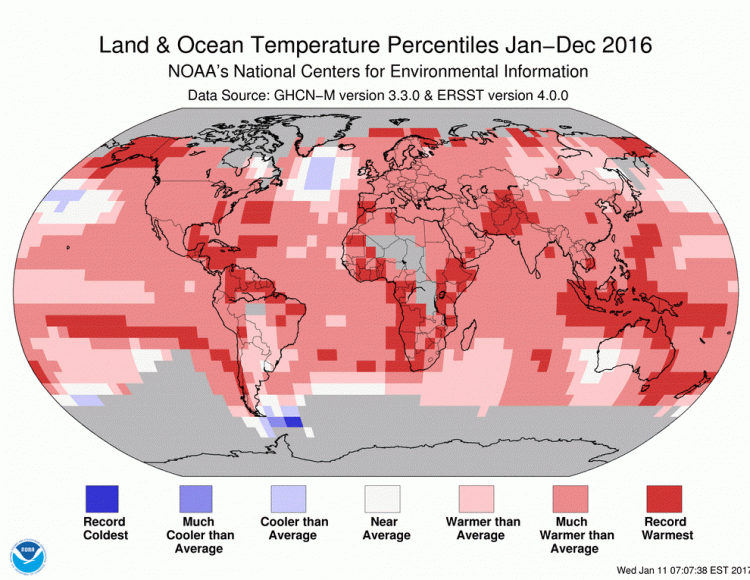
In a powerful testament to the warming of the planet, two leading U.S. science agencies jointly declared on Wednesday January 18, 2017, that 2016 was the hottest year on record, surpassing the previous record set just last year — which itself had topped a record set in 2014 – Washington Post reports
Last five years were hottest on record, more signs heat is man-made
The last five years have been the hottest on record, according to scientists from the World Meteorological Organization (WMO), the United Nations weather agency: Watch REUTERS video here
So we just experienced the hottest year on record. Again – How do we know? VIDEO
“after studying the Arctic and its climate for three and a half decades, I have concluded that what has happened over the last year goes beyond even the extreme,” wrote Mark Serreze, director of the National Snow and Ice Data Center in Boulder, Colo., in an essay for Earth magazine
And the Greenland Ice Sheet is melting at an accelerating rate, contributing to rising sea levels. But through all of my time studying the Arctic, never have I seen anything like the events of the last year.
What the heck is happening ? By any measure, the heat wave of the winter of 2015–2016, as well as what we’ve seen this past fall and early winter, represent extreme events. I’d argue that last summer’s excessive storminess also represents an extreme, albeit one that probably prevented yet another record-low September sea-ice extent. As any climate scientist will be quick to point out, it is never wise to read too much into individual extreme events — they happen. And there are identifiable causes for the events. Stormy summers tend to bring cool conditions over the Arctic Ocean, and both of the recent autumn/winter heat waves could be related to unusual patterns of atmospheric circulation drawing tremendous amounts of heat into the Arctic Ocean. There has also been a recent shift in ocean circulation, with more warm water from the Atlantic being brought into the Arctic; these warm ocean waters prevent sea-ice formation and warm the overlying air – by Mark Serreze.
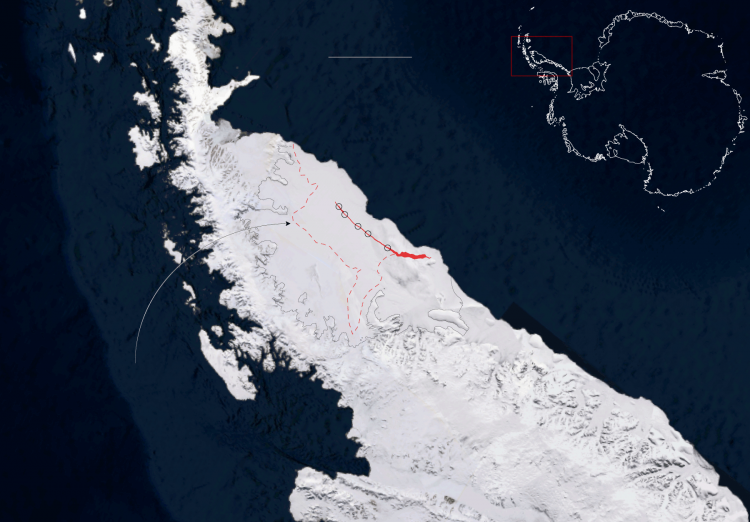
A Crack in an Antarctic Ice Shelf Grew 17 Miles in the Last Two Months
A rapidly advancing crack in Antarctica’s fourth-largest ice shelf has scientists concerned that it is getting close to a full break. The rift has accelerated this year in an area already vulnerable to warming temperatures. Since December, the crack has grown by the length of about five football fields each day – NYTimes reports
More Bad News for the Antarctic
Sea ice loss in the Arctic is directly linked to cumulative CO2 emissions in the atmosphere in a linear fashion, according to a December NSIDC analysis. That report revealed a linear relationship between three square meters of sea ice lost per every metric ton of CO2 added to the atmosphere.
In 2014, the most recent year for which data is available, humans added nearly 35.9 billion metric tons of CO2 to the atmosphere. Looking back over the past year, we must remember to connect the dots. Scientific reports about sea ice are not detached from the political realities in which we are now even more deeply mired – by By Dahr Jamail, Truthout | Report
Warning of mass extinction of species, including humans, within one decade
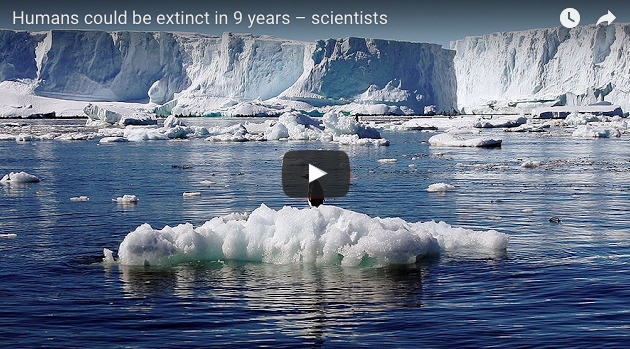
So it’s scientifically proven that the Arctic Ocean is heating up faster than the rest of the Earth. Temperatures over parts of it will increase by as much as 54 °F/12,22 °C this month, in comparison to previous decades.
Now, scientists who write for the Arctic News Blog even take the new detailed information a step further and warn humans we could become extinct by 2026 if climate initiatives are ignored across the globe. An earlier study by researchers led by De Vos had already concluded that current extinction rates are 1,000 times higher than natural background rates of extinction and future rates are likely to be 10,000 times higher. RT America’s Brigida Santos has more. Watch the RT report below:
Will humans be extinct by 2026? An exploration PFD of the potential, by Sam Carana, editor of Arctic-news.blogspot.com. View the full paper, and save it as a pdf or print it out in A4 format right here
This is not science.
But the smart reddit user ‘Thud’ points out brilliantly:
There’s nothing at all in the article that supports the claim that there will be a mass extinction of species within one decade. It’s just something the author claims without any supporting data. Climate change is real, and needs action, but come on…. we need to make sure the science is accurately communicated, not wild assumptions.
Edit – same blog says the global temp will rise 10C by 2026. Based on arbitrarily adding the effects of feedbacks – This is not science.
Faster than Expected – Earth will end up more like Mars.
According to the Pentagon’s JASON Group, the situation for life on Earth will be far worse than I have ever described. A well-informed insider there wrote on 19 December 2016: “THE JASON GROUP at the Pentagon is getting new data (upon my constant requests) that the effect of over 450 reactors melting down will most likely destroy the Ozone layers. Rather than going Venus Earth will end up more like Mars. Very dead with almost no chance to regenerate an atmosphere. Report to be published in 2017.” Says Guy McPherson, an American scientist, professor emeritus of natural resources and ecology and evolutionary biology at the University of Arizona.
“We’re heading for a temperature within that span that is at or near the highest temperature experienced on Earth in the last 2 billion years.” Guy McPherson.
“Hope in reality is the worst of all evils because it prolongs the torments of man.” – Friedrich Nietzsche.
Watch the interesting Guy McPherson/Paul Henry for New Zealand television interview, of the morning of 24 November 2016, below:

“By changing colour it changes the way [the ice] absorbs sunlight. It’s like going out on a sunny day in a dark T-shirt: you get hotter.”
How fast is the Arctic ice melting? Meet the British scientist who risked polar bear attacks and plagues of mosquitoes to find out. The Telegraph reports here

What to do? – Take Action
Take action by voting a green party. Use the Groen Kieskompas (Milieuorganisaties lanceren Groen Kieskompas | NOS) to check which party is the greenest for upcoming elections. also demand an effective and comprehensive climate plan described by the arctic news blog
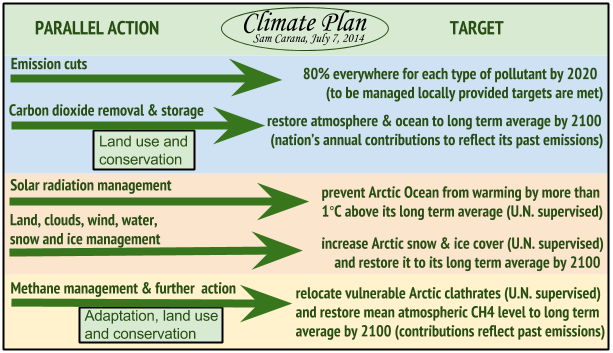
The Climate Plan describes the danger of runaway warming and constitutes a plan of action that is comprehensive and effective enough to stand a chance of reducing the threat of runaway warming, with obvious benefits for the environment and for species threatened with extinction.
Besides this, the proposed action will also save people money, will improve people’s health and safety, will increase security of food and fresh water supply, will make energy supply and the electric grid more efficient, safe, robust and reliable, will reduce perceived needs for military forces to police fuel supply lines globally, and will create numerous local job and investment opportunities.
Given the lack of action on climate change, any regulatory action may seem welcome. Nonetheless, if we have a say in the matter, why not advocate what we believe are the best policies? This Climate Plan blog offers an opportunity for people to jointly support an effective and comprehensive Climate Plan.
Please support, follow and discuss the Climate Plan – Climate Plan
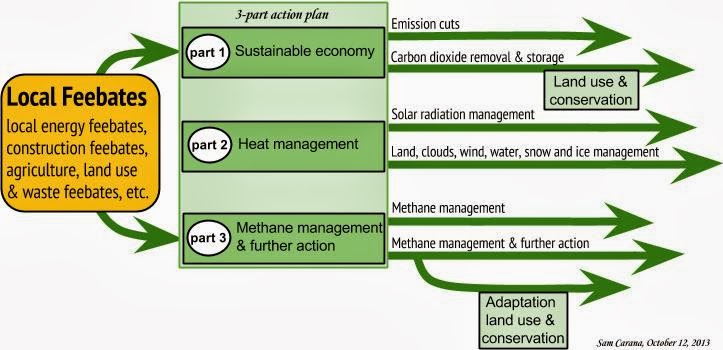
More
Why the Arctic waters are reluctant to freeze
Doomsday Prep for the Super-Rich – The New Yorker
Natural world faces its biggest ever threat, warns Sir David Attenborough
Atlantic Ocean Current Could Collapse Within 300 Years
Could a £400bn plan to refreeze the Arctic before the ice melts really work?
Humans causing climate to change 170 times faster than natural forces
January 2017 global temperature anomaly +0.41°C [1981-2010 baseline] Arctic extreme (relative) warmth continues
‘Beyond the extreme’: Scientists marvel at ‘increasingly non-natural’ Arctic warmth
Scientists react to Earth’s warmest year: ‘We are heading into a new unknown’
Current climate change models understate the problem, scientists argue
U.S. scientists officially declare 2016 the hottest year on record. That makes three in a row
Massive hurricane-force Atlantic storm to push abnormally mild air toward North Pol
Climate change ripples through life on Earth
Fossil fuel industry’s methane emissions far higher than thought